Featured
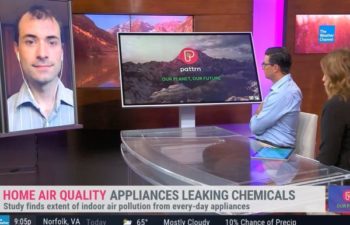
Natural gas is used in 11.5 million households across California, making the state home to the largest share of gas consumers in the United States. In October, PSE published a study in Environmental Science & Technology that found hazardous air pollutants—including carcinogenic benzene—are ubiquitous in natural gas throughout California. To learn more, watch the explainer video or read about the study in The New York Times.
Research and Events
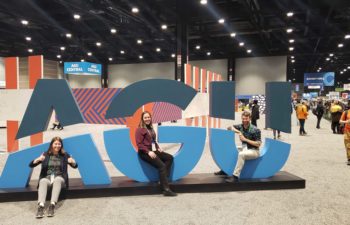
AGU 2022
PSE scientists joined the American Geophysical Union’s annual conference to present on ongoing research, including groundwater contamination from oil and gas wastewater, health risks from natural gas super emitters, and strategies for incorporating equity in the clean energy transition.
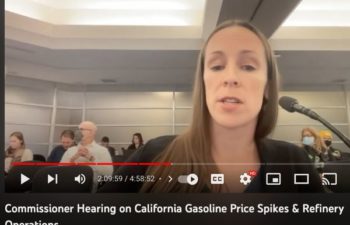
California Energy Commission
In November, the California Energy Commission hearing hosted the Informational Hearing on California Gasoline Price Spikes, Refinery Operations, and Transitioning to a Clean Transportation Fuels Future. At the Commission’s request, Dr. Elena Krieger presented on the impacts of gasoline price spikes and pollution on low-income communities of color.
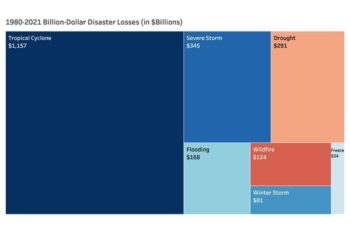
The Cost of Climate Change
In the United States, billion-dollar weather and climate disasters have led to $2.2 trillion in losses since 1980. In a report for the national, nonpartisan business group E2, PSE provides an overview of the economic toll of disasters in the United States since 1980. The report identifies trends related to specific types of disasters—such as storms or drought—as well as across regions, sectors, and over time, including future climate risks.

Richmond Air Monitoring Network
In 2020, PSE partnered with the Asian Pacific Environmental Network to launch the Richmond Air Monitoring Network (RAMN) – dense network of air quality monitors taking real-time measurements of air pollution in Richmond, North Richmond, and San Pablo, California. In a new report, PSE researchers analyze the air pollution trends measured by RAMN and find traffic is an important regional source of certain pollutants.
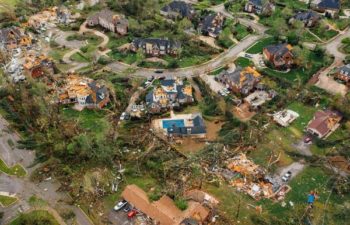
National Academies Of Sciences, Engineering, And Medicine Report: Resilience For Compounding And Cascading Events
As climate change increases the frequency and intensity of extreme weather events, communities are increasingly likely to face the compounding impacts of a new natural disaster before recovering from the last—or to experience cascading disasters as one event triggers another. Dr. Elena Krieger contributed to the National Academies’ Resilience for Compounding and Cascading Events report, which provides research recommendations for characterizing, mitigating, and responding to these events.
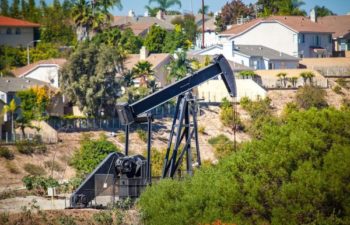
Examination of Produced Water Spills in California
A peer-reviewed study led by Dr. Rob Rossi analyzed reported incidents of oil and gas wastewater—known as produced water—spills within California’s HazMat database. The study found that between 2006–2020, a total of 1,029 produced water spills were reported, however, the database contained inconsistencies and lacked critical information needed for outside parties to analyze spill impacts. Based on these findings, the study’s authors provided guidance to state agencies on ways to improve the current reporting methods.
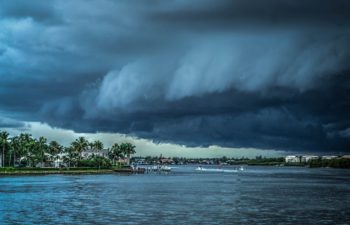
Hospitals at High Risk of Flooding from Hurricanes
How is climate change shifting flood risk for hospitals in the Atlantic and Gulf Coasts? Dr. Drew Michanowicz co-authored a study analyzing the risk posed by category 1-4 storms to 682 acute care hospitals in the Atlantic and Gulf Coasts, which collectively serve roughly 1 in 4 Americans. Based on the findings, the researchers estimate that climate change will increase the risk of hospital flooding by 22% this century.
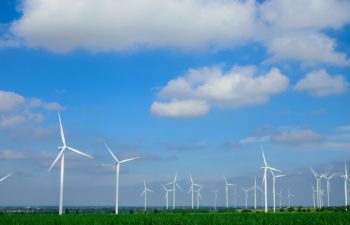
Editorial: Climate Change and Engineering Education
In a guest editorial in the Journal of Engineering Education, researchers from the National Academies of Sciences, Engineering, and Medicine’s New Voices 2021 cohort, including Dr. Elena Krieger, outlined shifts needed in engineering education to arm engineers with the skills needed in a warming world. The guest editorial, published in the, suggests that all engineers from students to experienced practitioners must understand how to apply core concepts of climate resilience and sustainability to their work.
Welcome to the Team

Bethany Kwoka joins PSE as a scientist. Their work focuses on building resilience and equity into energy system transitions. Bethany received a Master’s in Climate Science & Policy from Scripps Institution of Oceanography at UC San Diego, where their research explored ways to simultaneously incorporate emissions reductions, community resilience, and climate adaptation into grid modernization efforts.

Warren Stokes brings eight years of media relations and communications experience to his role of communications associate at PSE. Previously, Warren worked for the Department of Public Works in his hometown of Indianapolis, Indiana and then the Museum of Science and Industry in Chicago, Illinois.

Jasmine Lee joins PSE as an environmental data analyst. Jasmine has a Master’s in Public Health in Epidemiology and Biostatistics and a BA in Public Health from the University of California, Berkeley. Prior to PSE, Jasmine interned at the Bay Area Air Quality Management District where she worked on community emission reductions plans, looking at health and pollution data, in the Bay Area.
From the Blog
- New Research Links Gas Leaks to Air Pollution by Jackson Goldman, BS
- To Slow Global Warming We Must Cut Methane Emissions by Madelon Finkel, PhD
In the News
- The Los Angeles Times: Your gas stove might be polluting your home’s air even when it’s turned off, a new study finds
- Microgrid Knowledge: Here’s where we really need microgrids in the US
- Smithsonian Magazine: Gas Stoves Are Leaking Toxins Into California Homes
- KQED: Study Finds Dangerous Chemicals Leaking From Gas Stoves In California
- Univision: Estufas de gas en California tienen filtraciones de químicos que pueden causar cáncer, advierte un estudio
- TIME: Your Gas Stove May Be Leaking Benzene Into Your Kitchen—Even When It’s Off
- The Hill: Even when off, gas stoves can leak benzene concentrations comparable to secondhand smoke
- The New York Times: Researchers Find Benzene and Other Dangers in Gas Piped to California Homes